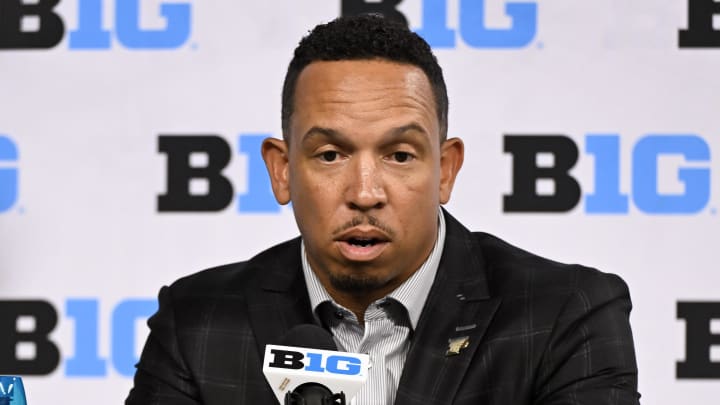
Ryan Walters was fired from his role as Purdue’s head football coach on Sunday, December 1, 2024, following a disastrous 66-0 loss to Indiana that capped off a 1-11 season without a single Big Ten win. With newfound free time, Walters took his family to Disney World, but just days into the trip, his wife encouraged him to return to work.
On January 3, Walters was hired as the new defensive coordinator at the University of Washington by head coach Jedd Fisch, filling the position left by Steve Belichick. Fisch prioritized bringing in Walters due to his stellar reputation as a defensive coordinator, developed during successful stints at Missouri and Illinois. Fisch even noted that he did not interview any other candidates once Walters expressed interest.
Walters’ coaching background is impressive, having risen through the ranks at Missouri under Barry Odom before joining Illinois in 2021. His Illinois defenses were among the nation’s best, leading the country in scoring defense in 2022 (12.3 points per game) and ranking second in total defense (263.8 yards per game). He also helped develop multiple NFL talents, including Devon Witherspoon, Sydney Brown, and Kerby Joseph.
Despite a challenging tenure at Purdue (5-19 record), Walters’ experience as a head coach made him even more appealing to Washington. Fisch pointed out that all four 2024 College Football Playoff semifinalists had a former head coach on staff, emphasizing the value of leadership experience.

Although Walters had the financial flexibility to take time off—he is set to receive approximately $9.34 million from Purdue in buyout payments over the next three years—he opted to return to coaching immediately. He signed a contract with Washington worth $1.4 million in 2025 and $1.5 million in 2026. Walters stated that Washington met all of his key requirements for his next role, making the decision an easy one.
Ryan Walters was particularly drawn to Washington because of head coach Jedd Fisch’s experience at both the college and NFL levels and his strong emphasis on player development. He also heard positive things about the defensive staff, including defensive line coach Jason Kaufusi, linebackers coach Robert Bala, and secondary coach John Richardson. At the time of his hiring, new safeties coach Taylor Mays had yet to be added to the staff.
When considering his next opportunity, Walters prioritized familiarity with the conference and evidence that a program could compete at a high level. Washington met both criteria. Additionally, Seattle was appealing on a personal level—his parents live in the area, and moving to UW allows his sons, Aaron and Cason, to spend more time with their grandparents. This marks the first time since 2009, when he was a student assistant at Colorado, that Walters has lived in the same city as his parents.
On the field, Walters plans to bring the same defensive principles that made him successful at Illinois. He emphasizes effort, physicality, strong red-zone defense, and third-down efficiency. He also prioritizes creating turnovers—an area where Washington struggled in 2024, ranking near the bottom of the Big Ten in interceptions (15th) and forced fumbles (11th). His defense will feature multiple schemes and looks, a continuity that aligns with what Fisch appreciated about Steve Belichick’s defensive approach.
Walters also takes lessons from his head coaching experience at Purdue. After firing offensive coordinator Graham Harrell early in the 2024 season, he took over play-calling duties for the first time, gaining a fresh perspective on offensive strategy—even if Purdue’s offense remained lackluster. While his tenure at Purdue wasn’t successful, he believes those challenges helped him grow as a coach.
Ultimately, Walters was eager to return to coaching. His wife recognized his itch to get back to work just days into their Disney World trip. “It was cool for about two-and-a-half days,” he admitted. But the desire to be part of a team, build relationships, and compete drove him back. Joining Washington, he said, was an easy decision. “To be able to get back to playing competitive football and trying to help a prestigious university like Washington win a championship, it was a no-brainer.”
Leave a Reply